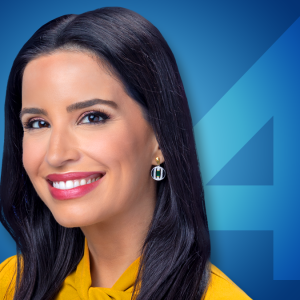MILWAUKEE — To Two Americas, where this series shows you the America you may be familiar with, and the one you might not be.
This includes the struggle our college students are facing. We are not just talking about student loans, but the uphill battle students of color face in Southeast Wisconsin.
About 1 in 4 Latino or Black students graduate college within five years, compared to more than 6 in 10 white students on average who graduate within that same time.
Kellie J. Sigh sees the problem every day, from both a race and income inequality perspective. "Scholars who are coming from more affluent backgrounds who more often or not identify as white are two to three times more likely to graduate with a college degree than one who comes from a limited income background," said Sigh.

Which is where organizations like non-profit College Possible comes in, to fill that gap. This includes students like Biluge Ntabala.
She immigrated from Rwanda to Milwaukee when she was 12 years old. "Without College Possible do you think you would be getting your masters degree and graduating in May?" asked TMJ4's Julia Fello. Biluge replied, "I don't think so."
Sigh says, "Biluge had all the motivation of the world. We were just there to help fill in some gaps."
This includes finding scholarships for her to afford college, which is a huge social barrier for many students. Right now, the average student loan debt in the U.S. is $31,000.
Video: Kellie J. Sigh speaks about how they help scholars in the College Possible program, even when they need a break from University due to the cost burden:
Biluge attends Marquette University with a full-ride scholarship. "I wouldn't have known there was another way to afford college. If I didn't have that information, I think I would have been lost," Biluge said.

This nationwide mentor program starts with students in 19 different high schools in our area alone. They found their African-American scholars are four times more likely to graduate with a college degree, compared to the national average, which is 11.1 percent.
"I never want to submit to anyone that College Possible is the 'silver bullet,'" said Sigh. "It's a partnership, and just help point them to things they might not otherwise know about."
For Biluge, she is studying to apply to law school next. "I want to focus on immigration law, human rights law, and health law," said Biluge.
Showing with just a little support and a lot of hard work, anything is possible.
The organization's mentors are Americorps volunteers across the country. Their next goal is to partner with businesses in our community to offer students paid internships and help pay off their college debt.




![SNG_Digital_Ad_480x360_CTA[13].jpg](https://ewscripps.brightspotcdn.com/7d/db/0b14063144e881c22c4592637e0d/sng-digital-ad-480x360-cta13.jpg)